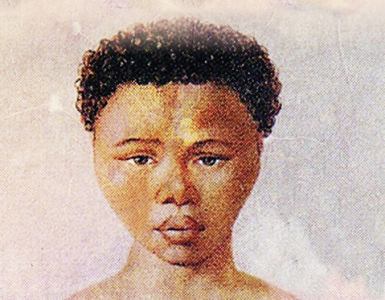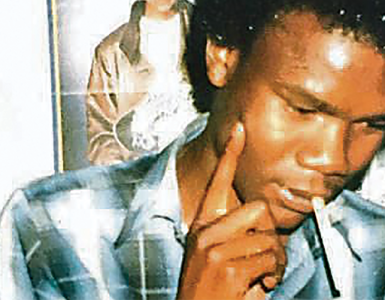LEAP: He spent years gaining solid understanding of groundwork involved in drug discovery and medicinal plants…
By Sally Frost and Len Maseko
A Zimbabwe-born academic, who recently obtained his doctorate from the University of KwaZulu-Natal, has uncovered traditional medicinal plants singled out for their potential treatment of Type 2 diabetes – ‘South Africa’s second biggest killer disease’ after tuberculosis (TB).
In a major breakthrough, Dr Brian Beseni – capped at last month’s UKZN graduation ceremony for completing his doctoral studies – has identified certain compounds in traditional medicinal plants which showed promise in developing cost-effective medications – with fewer side effects compared to current treatments
Over the years, the young biochemist has gained a solid understanding of the groundwork involved in drug discovery and development from medicinal plants, including ethnobotanical surveys, in vitro analysis and compound identification.
Beseni’s dissertation focused on exploring South African traditional medicinal plants as potential treatments for Type 2 diabetes (T2DM). These included Rhus longipes (large-leaved rhus), Celtis africana (white stinkwood), Schotia brachypetala (weeping boer-bean), Trema orientalis (pigeon wood) and Albizia adentifolia (flat-crown albizia).
His dissertation supervisor, Professor Shahidul Islam, explained: “Brian used different parts of different plants based on their morphology initially; then we took the best extracts/fractions for further studies via ex vivo followed by in vivo (animal model) studies.
“These plants were found to mitigate T2DM (Type 2 Diabetes) and its associated complications through various mechanisms, including the restoration of redox balance and euglycemic levels, regulation of lipid metabolism, and reduction of oxidative tissue damage,’ said Beseni. ‘The identified plant compounds showed promise in developing cost-effective medications with fewer side effects compared to current treatments”.
The findings from his research highlight the potential of the examined plants to offer new, affordable treatments for T2DM.
“My work bridges modern science with indigenous knowledge, contributing to sustainable healthcare solutions that are accessible to a broader population,” he said. Beseni hopes that his research will promote biodiversity preservation and increase the cultivation of valuable plants across Africa. Currently he is collaborating with farmers in the Mopani district of Limpopo to cultivate and preserve traditional medicinal plants, ensuring their availability for future generations.
Looking to the future, he plans to investigate further the precise mechanisms of the compounds identified in his study, to develop them into marketable pharmaceutical agents.
Said Islam: “Diabetes is one of the major global public health problems today. Through his research, Brian has made an outstanding contribution in the area of alternative medicine and Type 2 Diabetes, by using several African medicinal plants which will help to develop new generation anti-diabetic medicines with fewer or no side effects. He has also published a number of papers from his thesis, with more to follow”.
Beseni believes that scientific validation, documentation and wide-spread dissemination of indigenous knowledge pertaining to medicine is vital for the advancement of better healthcare systems in African countries. Studies predict that T2DM could reach pandemic levels if current intervention strategies are not strengthened. In Africa, some 80 percent of the population still relies on traditional medicine as a primary healthcare regimen against various diseases, including T2DM.
According to the NCD Alliance, a civil society network, non-communicable diseases cause 71% of deaths globally. Of these deaths, 85% occur in low and middle income countries.
In South Africa, according to Statistics South Africa, there was an increase of 58% in deaths from non-communicable diseases from 1997 to 2018. Diabetes is the second leading cause of death in South Africa after tuberculosis. Diabetes affects 12 percent of the adult population, wreaking massive damage to individuals’ health and livelihoods, and to the national fiscus. The direct cost of diabetes to South Africa’s health system is R2.7 billion (US$150 million) – and that is only for those patients who are diagnosed. It does not factor in the indirect costs of loss of jobs and income.
If all cases were diagnosed and treated, PRICELESS SA, a research unit based at the School of Public Health at the University of the Witwatersrand, estimates this would cost R21.8 billion (US$1.2 billion) a year, rising to R35 billion (US$1.9 billion) in real terms by 2030.

PASSION, HARD WORK PAY OFF FOR HIGH-FLYING BESENI
ACHIEVER: He spent years gaining a solid understanding of the groundwork involved in drug discovery and development from medicinal plants…
By Sally Frost
A childhood interest in indigenous knowledge systems (IKS) and traditional medicinal plants has blossomed into a PhD in Biochemistry for Dr Brian Beseni.
“As a child, I witnessed the remarkable benefits of these plants,’ said the newly capped biochemist, a Zimbabwean-born academic who obtained his doctorate from the University of KwaZulu-Natal last month.
“This experience, combined with my deep passion for science, ignited my academic journey in pharmacognosy and drug discovery from natural sources.”
Over the years, Beseni gained a solid understanding of the groundwork involved in drug discovery and development from medicinal plants, including ethnobotanical surveys, in vitro analysis and compound identification.
When it came to PhD studies, the University of KwaZulu-Natal (UKZN) stood out as one of the few universities in South Africa offering comprehensive facilities and expertise crucial for novel nutraceutical drug discovery.
“The staff at the Biochemistry Department foster an environment of idea sharing that is essential to cutting-edge research,” said Beseni. “My supervisor, Professor Shahidul Islam, has been a wellspring of knowledge and expertise, whose technical guidance and writing prowess propelled this research.” He was also grateful for the Biomedical Research Unit (BRU) at UKZN and the expertise of professionals like Dr Linda Bester, Dr Nqobile Jaca and Mr David Mompe, whose meticulous work was vital in ensuring accurate animal model-based research.
In this spare time, Beseni enjoys fabric graphic design and participating in sustainable agriculture initiatives, which allow him to express his creativity and stay connected to his roots in nature and traditional practices.
“UKZN has been my university of choice owing to its research-driven environment and experienced academics who equip students with both academic and soft skills that are highly valuable in the job market,” he said.
“I would also like to commend the ongoing UCDP PhD teacher training programme (University Capacity Development Programme), which I was fortunate to be a part of. This programme provided me with knowledge in curriculum development, business management, pedagogy and soft skills aligned with the blended learning approach essential for the 4IR revolution.
He paid tribute to his parents, supervisor and the entire BRU biomedical research team for their technical guidance and encouragement.
Beseni obtained his BSc in Biochemistry from the University of Limpopo nearly a decade ago. He attended his primary education at St John’s Retreat Primary School in Mbare, Zimbabwe.































